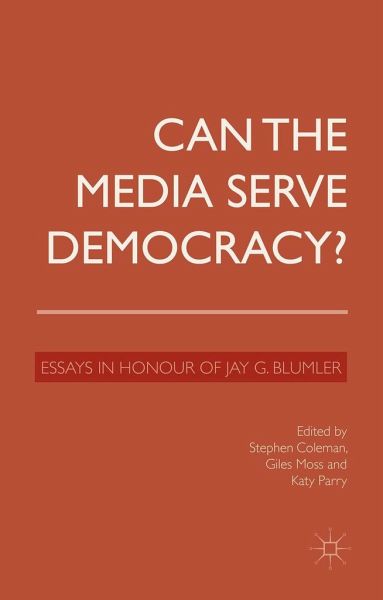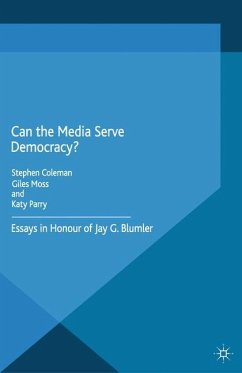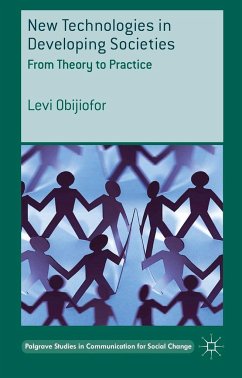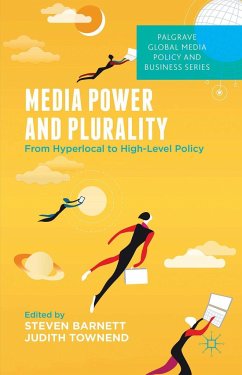
Can the Media Serve Democracy?
Essays in Honour of Jay G. Blumler
Herausgegeben: Coleman, S.; Moss, G.; Parry, K.

PAYBACK Punkte
19 °P sammeln!
This landmark collection brings together many of the leading scholars in the field of political communication to reflect upon a key question of our age: Can the media serve democracy?
This landmark collection brings leading scholars in the field of political communication to debate one of the most important questions of our age: Can the media serve democracy? For the media to be democratic, they must enter into a positive relationship with their readers, viewers and listeners as citizens rather than consumers who buy things, audiences who gaze upon spectacles or isolated egos, obsessed with themselves. The media's first task is to remind people that they are inhabitants of a world in which they can make a difference. By enabling citizens to encounter and make sense of events, relationships and cultures of which they have no direct experience, the media constitute a public arena in which members of the public come together as more than passing strangers.












